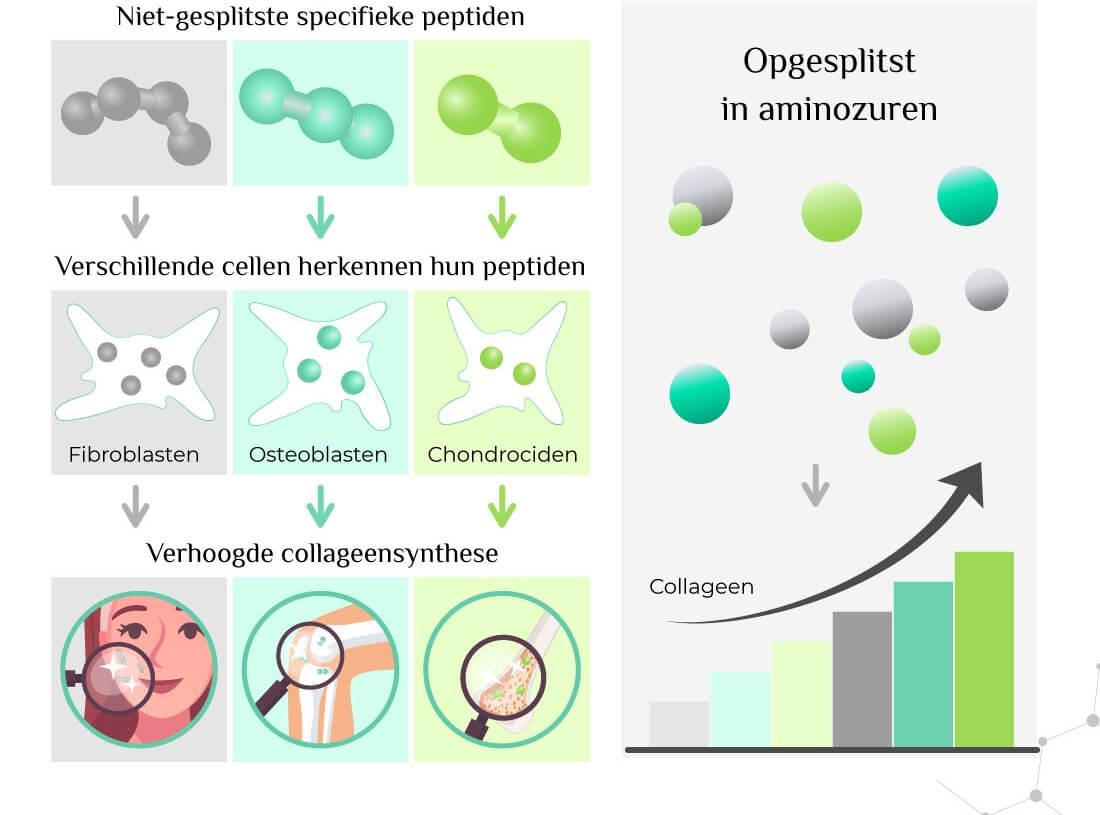Shopping cart
- No products in the cart.
Subtotal:
€ 0,00

Collagen peptides used in Collavita products work simultaneously in two ways, helping our bodies form collagen. Collagen peptides are formed by hydrolysis of the collagen molecule into smaller fragments - bioactive peptides. Both their size and amino acid composition are very important.The bioactive peptides in Collavita products have a different peptide profile according to application and are hydrolyzed in a specific way to produce more collagen in a specific target organ (skin, joints, muscles, etc.).When cells specialized in our body detect degraded collagen in their environment, they increase collagen production to higher than normal levels to find a balance. This helps cartilage repair faster. In skin, for example, the target cells are fibroblasts. In bone, they are called osteoblasts.Some collagen peptides are completely broken down into amino acids in the stomach and are the building blocks for collagen production. The peptides that remain intact as they pass through the intestines (and are recognized as degraded collagen) are the ones that can stimulate cells to produce more collagen.
StomachBroken down by enzymes of the stomach and small intestine into tripeptides and amino acids
BowelThese separated substances are absorbed in the small intestine
BloodstreamThey enter the bloodstream and are transported through the body

Connective tissueCells synthesize collagen from amino acids, tripeptides stimulate cells to produce collagen
Collagen is a naturally occurring protein found in our bodies, and its many benefits are becoming increasingly popular. It can be used by a wide audience, from active athletes to the elderly, and offers many health benefits. With the wide variety of collagen available on the market today, it is important to know who can use it and what type of collagen is best for each user.
(*) Vitamin C contributes to the normal function of the immune system during and after intense physical exertion. Vitamin D contributes to the maintenance of normal bones and muscles. Vitamin C contributes to normal collagen formation for the normal function of bones, cartilage, skin and teeth.





(*) Vitamin C contributes to the normal function of the immune system during and after intense physical exertion. Vitamin D contributes to the maintenance of normal bones and muscles. Vitamin C contributes to normal collagen formation for the normal function of bones, cartilage, skin and teeth.







